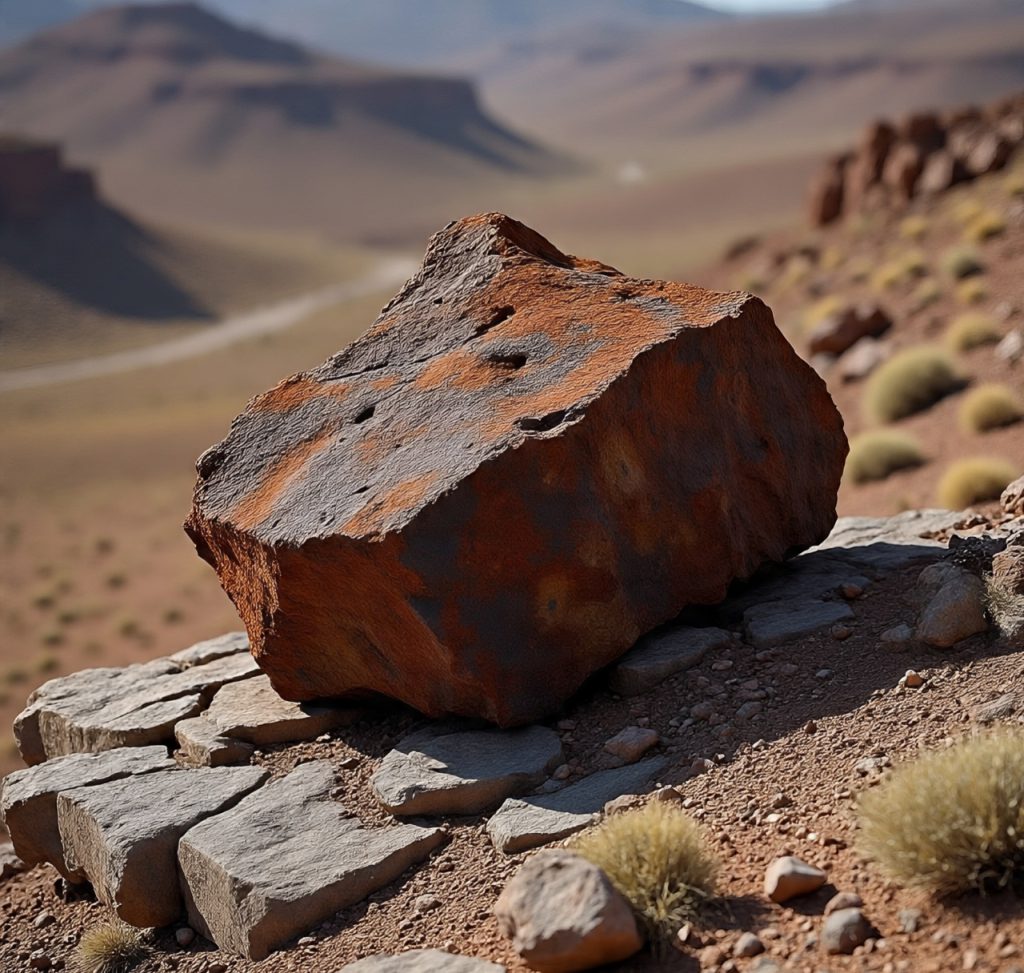What It Is and What Export of It Is
Iron ore is a naturally occurring mineral composed primarily of iron oxides, typically found in rocks and minerals across the globe. It is the primary raw material used in the production of steel, which is an essential component in construction, manufacturing, automotive, shipbuilding, and infrastructure development.
Nigeria is blessed with vast reserves of high-quality iron ore, particularly in states such as Kogi, Enugu, Zamfara, Niger, and Kaduna. The export of iron ore involves sourcing, processing (crushing, washing, magnetic separation), grading, packaging, and shipping the mineral to international buyers for industrial use.
With the global demand for steel rising, Nigeria’s iron ore reserves have attracted interest from international markets, especially in Asia and Europe. Exporters play a crucial role in bridging this gap by making Nigerian iron ore available to buyers abroad.

Uses of Iron Ore
Iron ore is one of the most important minerals globally, with diverse applications, including:
-
Steel Production – Over 90% of iron ore mined is used in the production of steel.
-
Construction Industry – Steel derived from iron ore is used in building bridges, roads, railways, and skyscrapers.
-
Automobile Industry – Essential for manufacturing vehicles, engines, and parts.
-
Shipbuilding – Used in making ships and offshore drilling platforms.
-
Machinery & Tools – Forms the backbone of industrial machines and agricultural equipment.
-
Household Items – Products like cutlery, kitchenware, and furniture frames are made using steel derived from iron ore.
-
Energy Sector – Utilized in the manufacture of pipelines, power plants, and energy infrastructure.
Export Specifications for Iron Ore
When exporting iron ore, quality and specifications matter greatly. Buyers often require specific grades, determined by Fe (iron) content and other parameters.
Typical Export Specifications
-
Iron Content (Fe): 55% – 68% (depending on grade)
-
Form: Lumps, fines, or concentrates
-
Moisture Content: Max 8%
-
Silica (SiO2): 1.5% – 4%
-
Alumina (Al2O3): 1% – 2.5%
-
Sulphur (S): Max 0.02% – 0.05%
-
Phosphorus (P): Max 0.05% – 0.08%
-
Size:
-
Lumps: 10mm – 40mm
-
Fines: <10mm
-
-
Packaging: Bulk shipment, or in 50kg/1MT jumbo bags (depending on buyer preference).
Packaging and Export Form
Iron ore is usually exported in bulk due to its weight and volume. However, smaller orders can be packed in jumbo bags.
-
Bulk Shipment: Loaded into vessels for large-scale buyers.
-
Jumbo Bags (1MT): For smaller consignments or trial shipments.
-
50kg Bags (Optional): Rare but available for specialized requests.
Export Process for Iron Ore
-
Sourcing: Identify mining sites in Kogi, Enugu, or Niger State.
-
Processing: Crush, wash, and concentrate the ore to meet export specifications.
-
Testing: Carry out SGS, Intertek, or Bureau Veritas laboratory testing to certify quality.
-
Documentation: Secure export license, mining permits, NEPC registration, and shipping documents.
-
Logistics: Transport via trucks to ports (Apapa, Tin Can, Onne).
-
Shipment: Load onto vessels (usually bulk carriers) for export.
Nigeria’s Export Potential for Iron Ore
Nigeria’s proven iron ore reserves are estimated at over 2 billion metric tons, making it one of the largest in Africa. However, only a small fraction is being mined and exported. The global demand for iron ore is massive, particularly in countries like China, Japan, India, and South Korea, which import millions of tons annually for steel production.
This presents a huge opportunity for Nigerian exporters to scale operations and benefit from the global steel market, which is valued at over $2.5 trillion annually.

Major Importing Countries
-
China – World’s largest importer (over 60% of global demand).
-
India – Rapidly growing steel industry.
-
Japan – Heavy demand for shipbuilding and automotive industries.
-
South Korea – Manufacturing and energy infrastructure.
-
European Union (Germany, Italy, Spain) – Industrial and construction sectors.
HS Code for Iron Ore
-
HS Code: 2601.11 – Iron ores and concentrates, non-agglomerated
-
HS Code: 2601.12 – Iron ores and concentrates, agglomerated
Market Demand & Profitability
-
Global Demand: Over 2.5 billion metric tons annually.
-
Price Range: $80 – $120 per metric ton (depending on grade & global market).
-
Profit Margin: Strong, especially with direct mining and processing.
-
UK Market Potential: Though the UK is not a major importer compared to Asia, it imports iron ore for its steel industry and resells processed steel to other European countries.
Challenges in Iron Ore Export
-
Infrastructure Deficit: Poor rail and road networks affect logistics.
-
High Cost of Production: Mining and processing equipment require huge capital.
-
Regulatory Compliance: Multiple government approvals and licenses.
-
Global Price Volatility: Prices fluctuate depending on steel demand.
-
Competition: Major exporters like Australia and Brazil dominate the market.

Opportunities in Iron Ore Export
-
Establishing value-added processing plants in Nigeria to produce steel instead of exporting raw ore.
-
Partnering with international buyers to secure long-term contracts.
-
Taking advantage of Nigeria’s proximity to Europe and the Middle East for lower freight costs compared to Asian suppliers.
-
Government incentives through the Nigerian Solid Minerals Development Fund (SMDF).
Summary:
Iron ore is one of Nigeria’s most underutilized export opportunities, with vast reserves yet to be fully tapped. With proper mining, processing, certification, and adherence to international standards, Nigerian exporters can profitably tap into the booming steel market.

